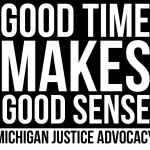Cost-Effectively Enhancing Human Development in the Michigan Department of Corrections
ABSTRACT
Authors: Dwight Henley N.L.A President (Chapter 1012)Charles Adams N.L.A Vice President (Chapter 1012)
This report is about basic humanity, and the impact imprisonment has on human development. The report begins by describing innate drivers and basic human needs. It then outlines how people’s self-concept, values, social identity, and life experience intensify their needs. Next, the report demonstrates how imprisonment alters a person’s life experience, truncates a person’s self-concept and social identity, and impacts a person’s ability to fulfill their basic human needs. It will also describe the role prison culture has on human development. In doing so, it will explain how imprisoned people conform to the norms of prison culture as a means of satisfying their basic needs and how this usually results in the person becoming someone other than who they want to be, or more often than not, someone worse.Next, the report outlines the rehabilitation process, or what is more correctly labeled the habilitation process (Yochelson & Samenow, 1976). This section addresses transition points, the stages of change, and the arduous change process. Subsequently it will discuss habilitation within the Michigan Department of Corrections (MDOC), providing a broad description of programs and habilitation approaches used within the department, It will utilize factual knowledge about programming and habilitation process to highlight the obvious voids and structural flaws in MDOC’s program structure. In response, we offer cost effective ways to enhance prisoner programming, to reshape prison culture, and to increase human development within the department. Lastly it will address some potential objections and end with some concluding remarks.




Leave a Reply